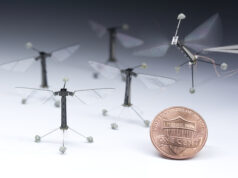The Madness of Modern Driving: Speed Demons and Phone Addicts
It’s a jungle out there. Highways packed with lunatics who think turn signals are a sign of weakness. Texting zombies swerving across lanes like they’re in a bad video game. And let’s not forget the speed freaks who treat the freeway like a personal NASCAR track.
And now, the newest player in this symphony of chaos? Smartphone apps that track your every move behind the wheel.
Yes, my friends, you’re being watched. A study from the AAA Foundation for Traffic Safety shows that when people know they’re being monitored, they actually—brace yourself—drive better.
Researchers took a page out of the playbook of Usage-Based Insurance (UBI) programs, where your driving habits dictate your insurance rates.
Hard braking? That’ll cost you. Speeding? Hope you enjoy higher premiums. But this study had a twist: participants weren’t being monitored by insurance companies—just a bunch of traffic safety nerds with a clipboard and a dream.
The Science of Self-Surveillance
The researchers rounded up 1,400 brave souls and divided them into four groups:
- The Control Group – No feedback, just vibes.
- The Standard Feedback Group – Weekly text messages with a breakdown of their driving sins.
- The Assigned Goal Group – Weekly texts focused on a single bad habit chosen for them.
- The Chosen Goal Group – Weekly texts about a bad habit they picked themselves.
The results? A collective dialing down of the madness. Among the groups getting feedback:
- Speeding dropped by 13%
- Hard braking fell by 21%
- Rapid acceleration plummeted by 25%
That’s right. The mere knowledge that someone was watching made people behave.
The Surprising Stubbornness of Phone Addicts
The researchers expected these new, enlightened drivers to keep their hands off their phones while cruising. But no dice.
Despite all the feedback, smartphone use while driving remained disturbingly high. The theory? When people saw their initial safety scores, they convinced themselves they were already saints behind the wheel.
Big Brother or Big Benefits? The Future of Driving Surveillance
After 12 weeks of data collection, the researchers pulled the plug to see if the new habits would stick. And guess what?
Even without feedback, most participants continued their safer driving streak. This suggests that positive reinforcement—not just fines and punishments—might be the key to fixing America’s roadways.
But there’s a catch. People don’t like being watched. UBI programs, where insurance companies use your driving data to adjust your rates, have been a hard sell.
In 2020, 16% of auto insurance shoppers were offered UBI, and 12% enrolled. By 2024, the offer rate stayed similar, but participation climbed to nearly 20%. More people are warming up to the idea of surveillance if it saves them cash. Source: USA Today.
So here’s the big question: If you’re willing to let an app count your steps, track your sleep, and log every calorie you eat, why not let it monitor how you drive?
The road to hell is paved with good intentions—and maybe a few too many speeding tickets. Welcome to the future. Source: AAA Foundation for Traffic Safety.











